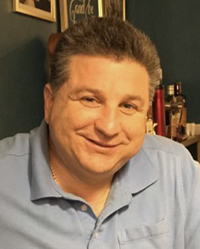Yorktown Accused of Being “Discriminatory” in Sober Home Suit
The Yorktown Town Board was slapped with a lawsuit two days after voting unanimously to revoke a special use permit for a controversial sober living home on Underhill Avenue, following confirmation that the residence had been sold.
In legal papers filed July 20 in federal court, attorney Robert Schonfeld, who appeared at a July 18 Town Board meeting and engaged in verbal confrontations with board members and Town Attorney Michael McDermott, alleged the board reacted to neighborhood opposition and acted in a “discriminatory manner” when revoking the permit originally granted to Constellations Recovery (a/k/a Compass Westchester).
McDermott explained on July 18 one of the conditions imposed by the board on Constellations Recovery when the permit was granted in 2015 was any change in ownership made the permit null and void.
On May 11, the 8,470-square-foot home at 482 Underhill Avenue was sold by Tom McCrossan and Mark McGoldrick to Justin Gurland, Matthew Rinklin and Zachary Clark, but McCrossan and McGoldrik claimed to remain as operators of the facility.
However, Supervisor Michael Grace and others said they did not believe McCrossan and McGoldrik would have any roles in the new convalescent home, which would be owned by Release Recovery LLC and Doah Property LLC.
“It’s just a ruse and I don’t buy it,” Grace remarked. “I went out on a limb for this place. I hoped this thing would be a success and it turned out not to be, and they proved it by selling it. We made a firm commitment to the residents that we would hold their feet to the fire on the conditions.”
In the lawsuit, Schonfeld alleged not only were Grace and councilmen Gregory Bernard, Thomas Diana and Vishnu Patel (Councilman Ed Lachterman was absent) in violation of the Federal Fair Housing Act and the Americans With Disabilities Act, but “it appeared Supervisor Grace was attempting to look for any argument to annul the special use permit, based on neighborhood opposition and his own reelection campaign.”
Grace, an attorney who is running for a third two-year term, said Monday the town had not yet been served with the lawsuit but stood by the board’s actions.
“The revocation of the Constellation Westchester special use permit was appropriate,” Grace stated in an email. “In approving the original special use permit we all were very hopeful that Constellation Westchester would be very successful. All agree that the issue of substance abuse and addiction has grown to epidemic levels. The loss of life and the very real pain experienced both by the addict and the immediate family is very real. As a community, we all should work toward helping others toward healing and recovery. Properly managed transitional living facilities are but just one of the many ways to combat this pressing problem.”
“Unfortunately in this case the operational paradigm proved problematic,” he continued. “It seems that to be successful greater control and on-site management is required elevating the use out of compatibility with our residential zoning parameters.”
Constellations Recovery offered Sober Living for as many as 14 adults, 18 years or older who had completed 30-, 60-, or 90-day inpatient, outpatient treatment, or had otherwise been cleared by a licensed professional to participate. Opened in May 2015, it was the first High End Recovery Center in Westchester. It was co-founded by McCrossan’s son, Devin, a recovering addict who was Director of Admissions.
One of the individuals who lived at the home was Henry “Hank” McWilliam, an 18-year-old Rye High School senior who died December 21, 2015 of an overdose after a weeklong stint there. Soon after, Compass Westchester ceased operating the residence.
In the lawsuit, Release Recovery, the principals of which have operated housing for people recovering from alcoholism and substance abuse in New York City, are seeking to annul the revocation of the special permit, compensatory and punitive damages and “enjoining the defendants from taking any steps to harass the plaintiffs in their operation of their residence.”

Rick has more than 40 years’ experience covering local news in Westchester and Putnam counties, running the gamut from politics and crime to sports and human interest. He has been an editor at Examiner Media since 2012. Read more from Rick’s editor-author bio here. Read Rick’s work here: https://www.theexaminernews.com/author/pezzullo_rick-writer/
